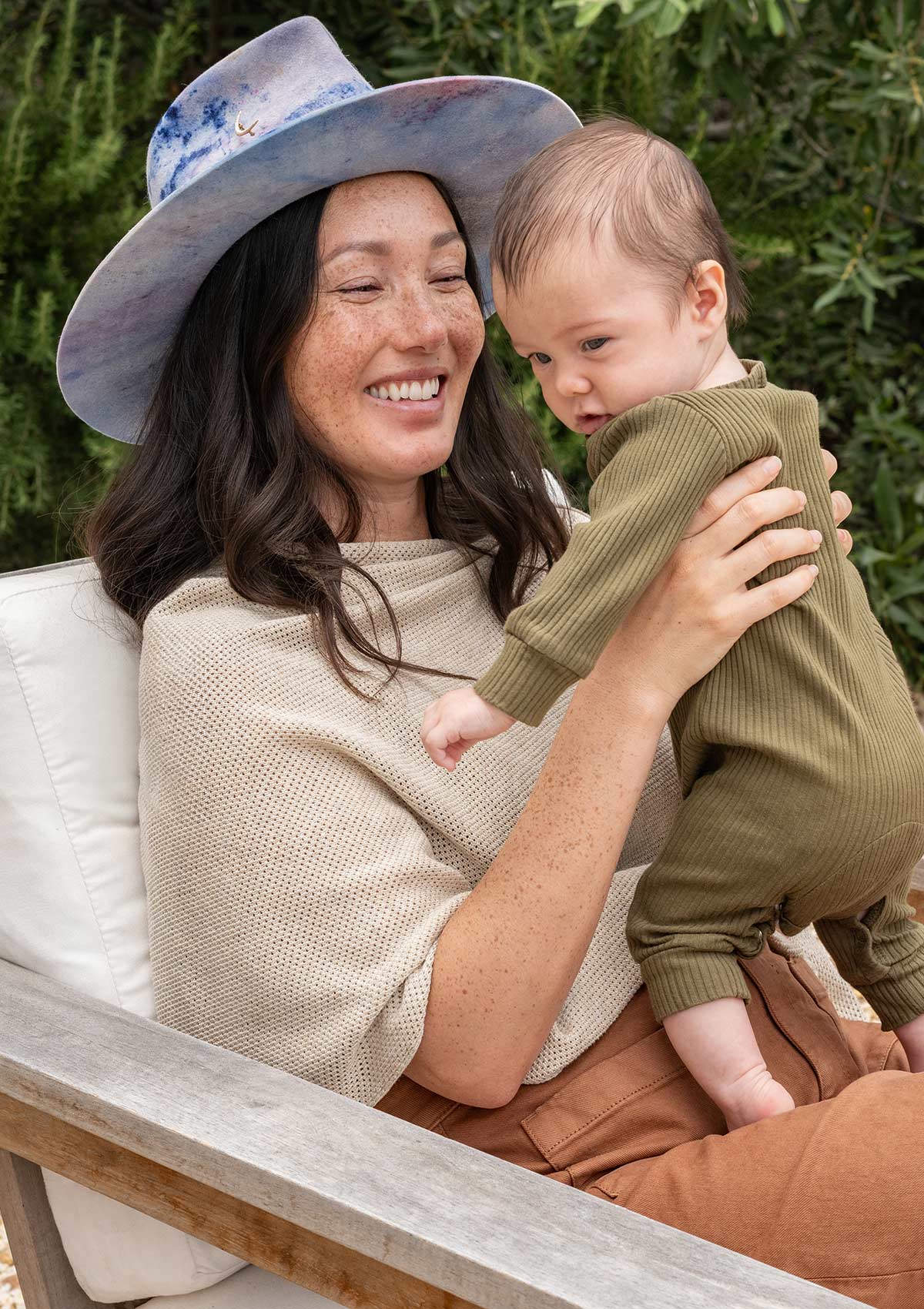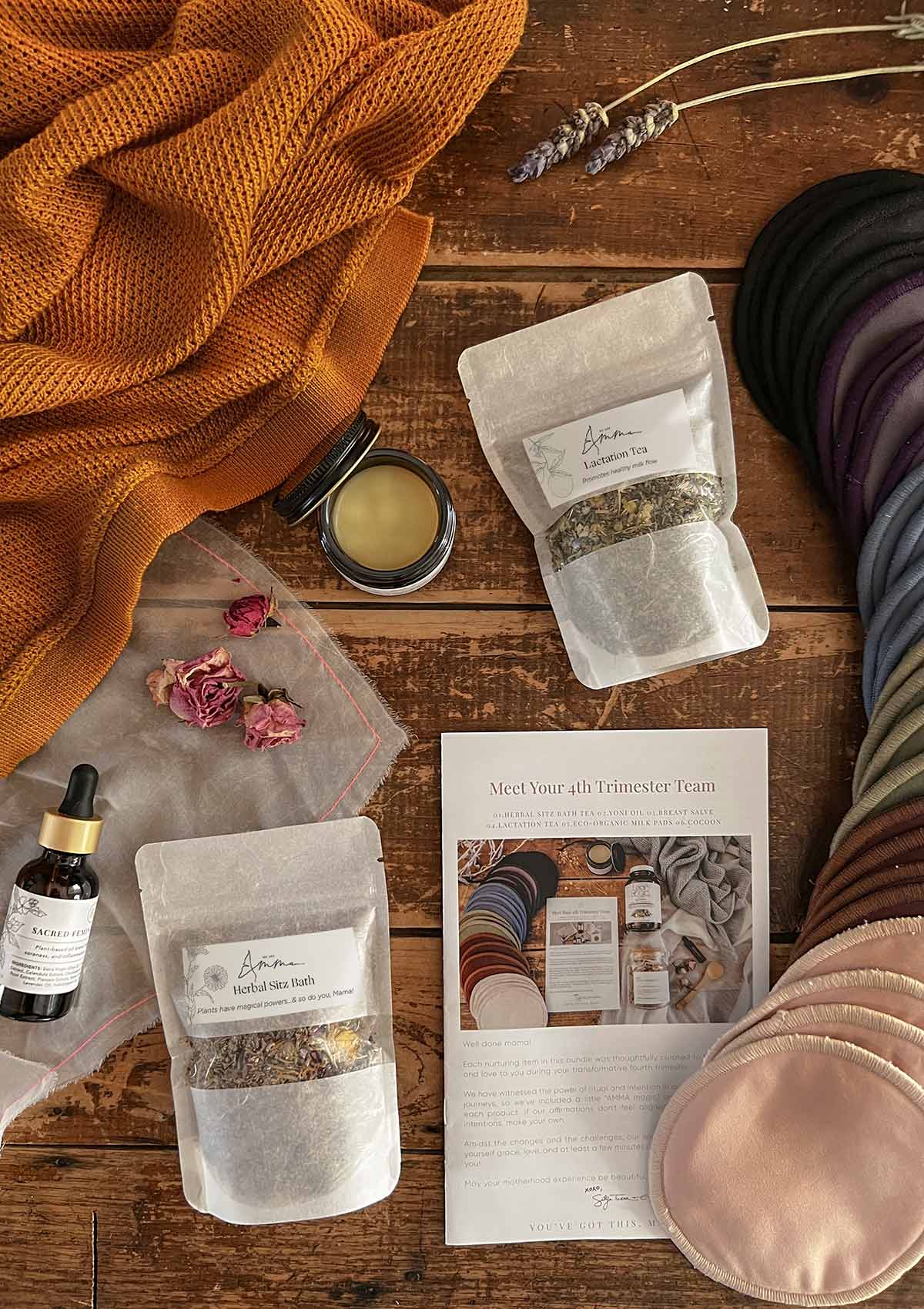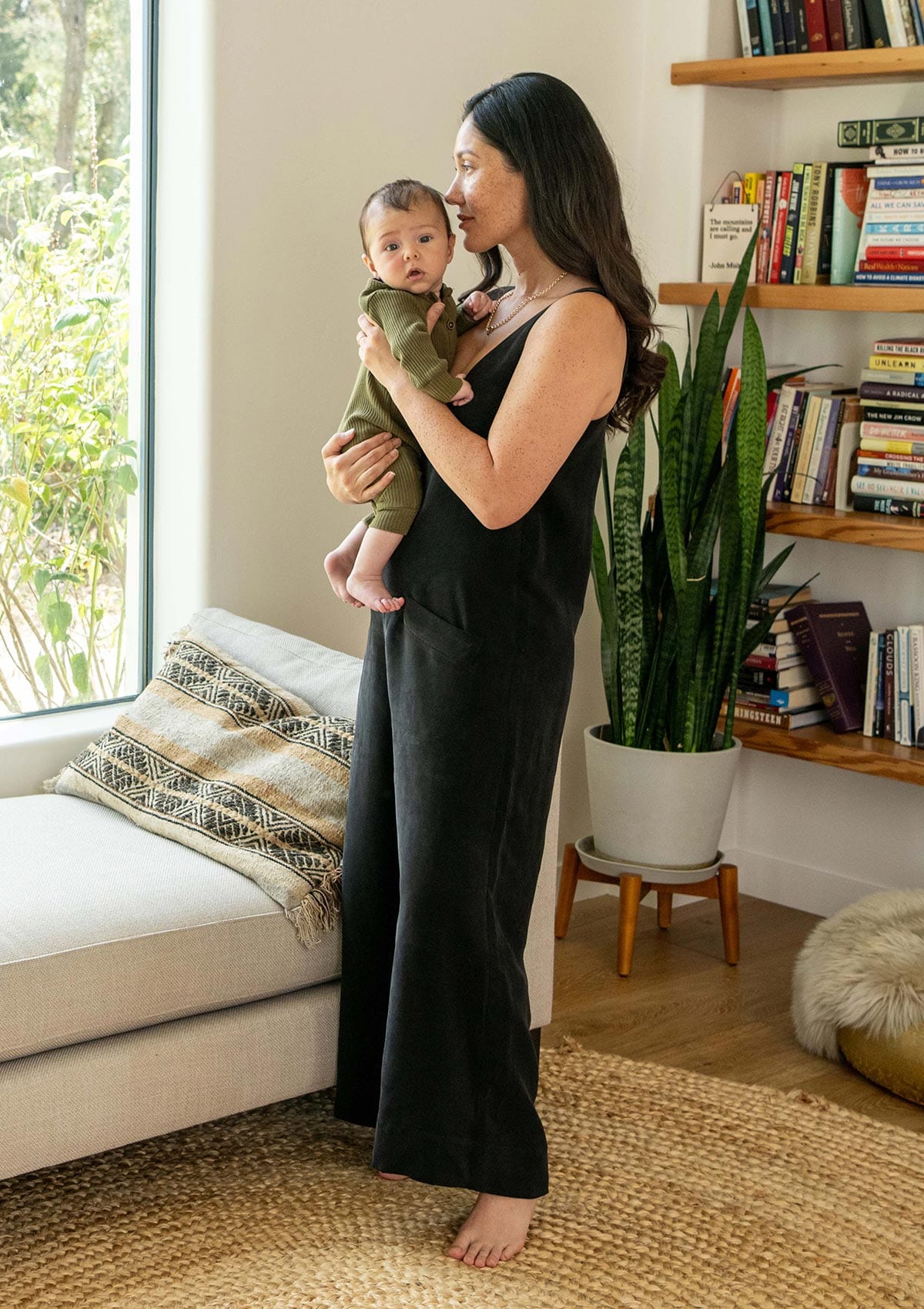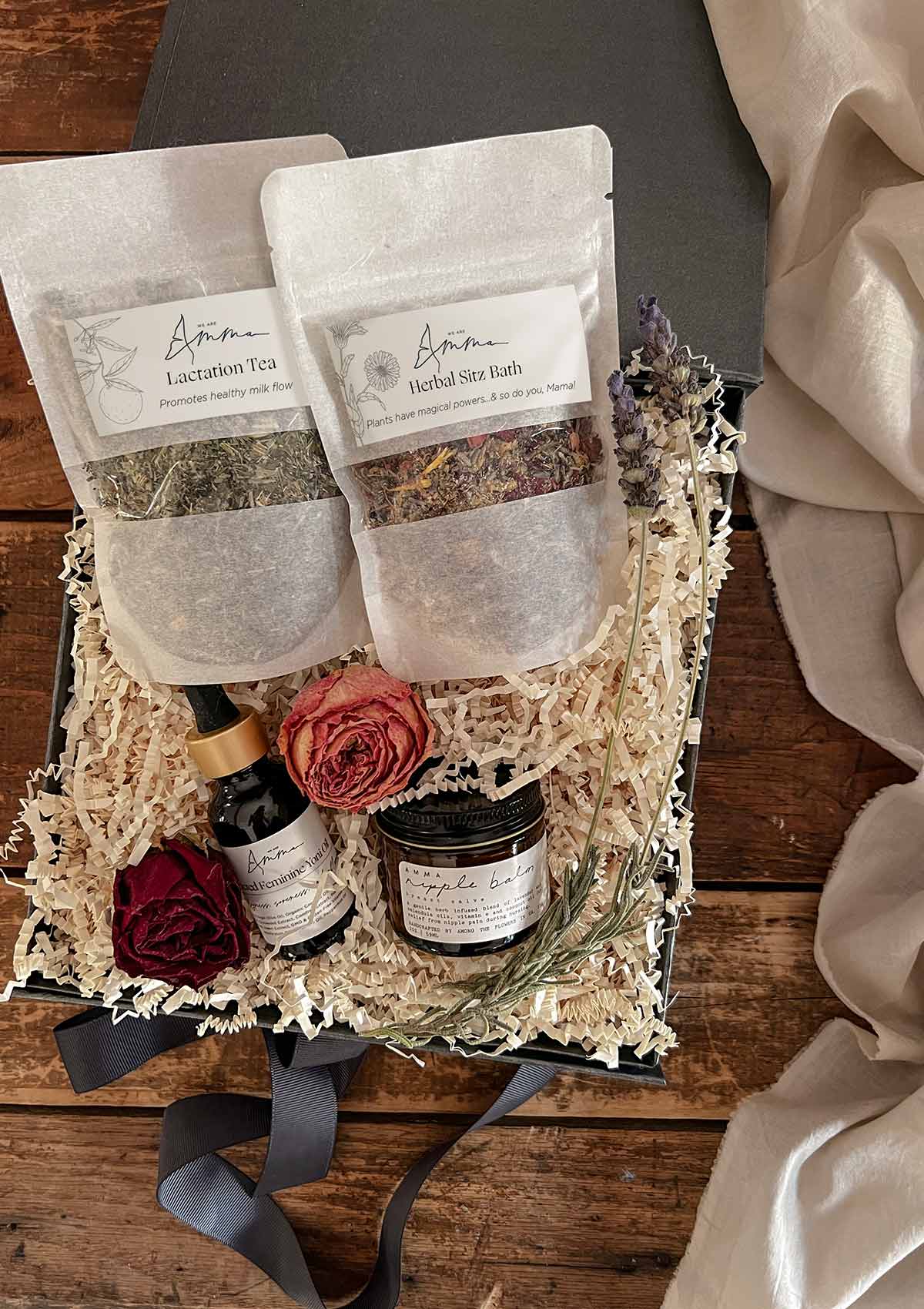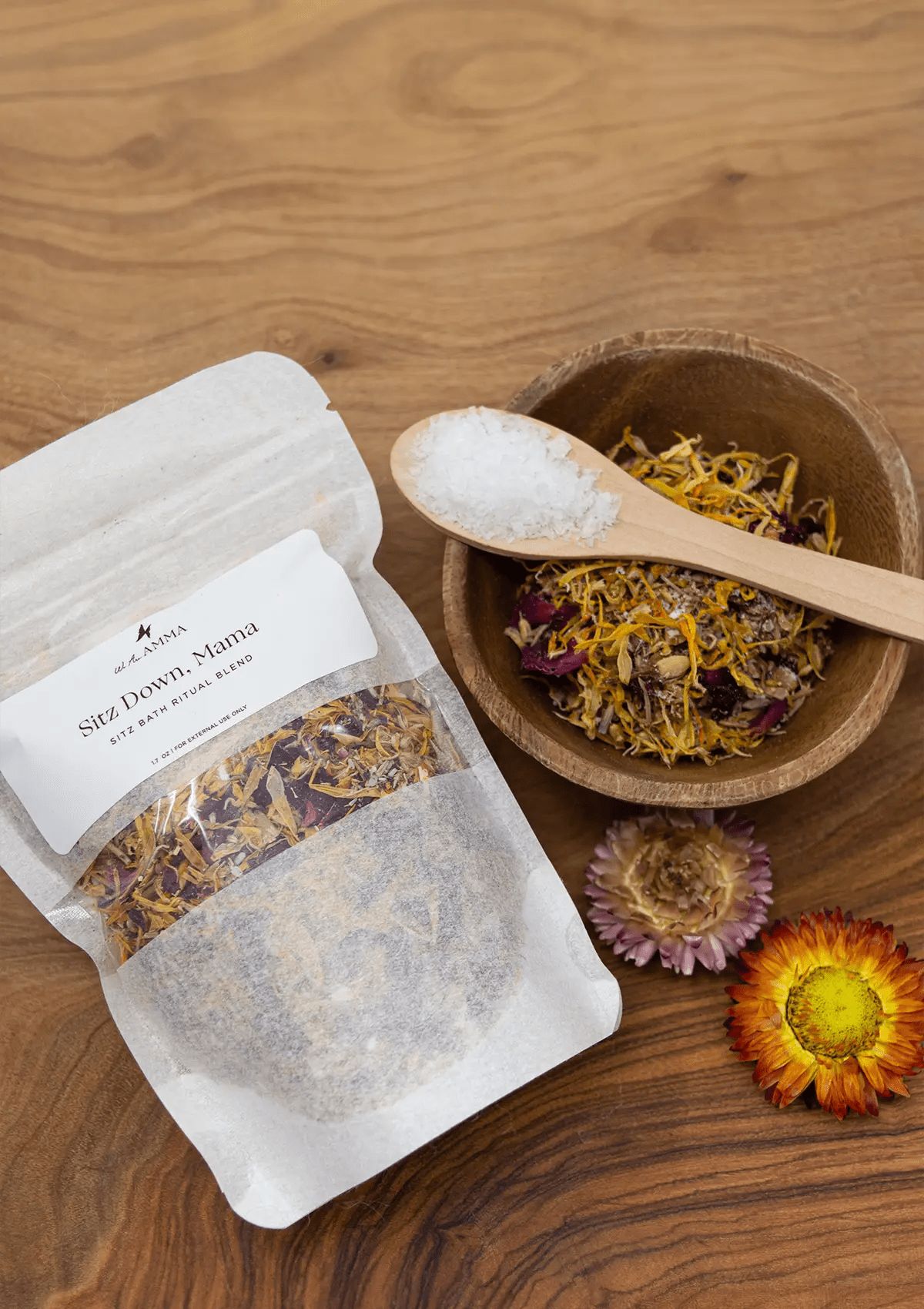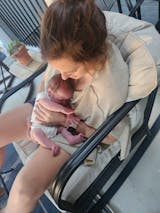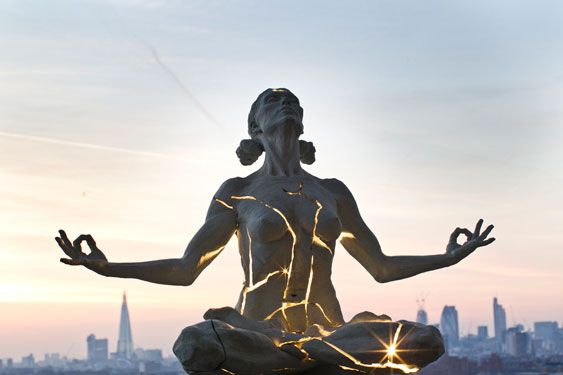
Trauma Healing: Honoring Your Sacred Feminine
“The health of the woman is the health of the tribe for all of her fruit is blessed.”
In one of our most vulnerable conversations yet, Emily sat down with Marcia Lopez, owner of Women’s True Healing in Los Angeles. Marcia is a shamanic practitioner, herbalist, energy worker, and body worker; she also applies traditional indigenous curanderismo alongside referrals to allopathic healthcare providers for a holistic approach to her healing methods. Watch below to hear Emily and Marcia talk about healing from trauma, tips for a restorative postpartum, and honoring our sacred bodies.
Mama Pro-Tip → Mamas, note that some of what is discussed in the video and recap might be triggering depending on your personal circumstances. If you skip to the bottom of the article, there is a resource list that may be useful. We see you and love you.
“If we base our societal health around the fact, the fundamental truth that all of us come from the womb, what kind of society would we build?”
The uterus (or womb) can symbolically be seen as a microrepresentation of the universe...it is the “cosmic portal” through which life is created and birthed. Being in alignment with our womb health connects us to our ancestors and to the elements, and plays a huge part in our overall well-being. When we experience or have experienced trauma (sexual, emotional, mental, etc.) that alignment is off. Marcia estimates that roughly 80% of the issues that her clients face can be traced back to some form of trauma, and with our current global circumstances people are unable to escape old and new wounds in ways we could before.
What effect does trauma have on our relationship to and beliefs about life?
When we consistently find ourselves in intense or stressful situations, it can affect our physiology and our central nervous system. Simply put, trauma engages our fight/flight/freeze survival response. This can impact the bodily function of our visceral and reproductive organs both in terms of the actual function of the vagus nerve and, as taught in more traditional folk medicines, the emotional health and energy lines of your organs. If we stay stuck in a certain trauma state without addressing or healing, we are unable to engage in relationships from a foundation of safety...including our relationship with our very existence.
How can we find our specific healing journey?
Just as everyone’s pain is unique to them, so too is their journey to heal that pain. Any therapist you see should be skilled enough to understand that and find what works for you. For Marcia, her healing lies in her spirituality and faith...for others, recovery and coping happen via athletic endeavors, artistic practices, journaling, etc. Inspiration might be found in indigenous cultures, where the journey to healing is centered around physical or tangible practices (sweat lodges, fire ceremonies, community gatherings) that you can participate in. The benefit to this is having the communal space to work and be supported within, and being able to return to the practice that spoke to you if you need a foundation to approach your healing in the future.
Mama Pro-Tip → Participating in a practice doesn’t mean that the trauma is neatly over, it means you acknowledged it and processed it. Celebrate that...sing, dance, cry, give thanks! Your journey will be ongoing, but that does not equate failure. Quite the opposite :)
What role does family play in trauma healing, if the trauma stems from the family?
One of the hard truths right now is that there is a lot of acceptance that we need to do...accepting the way things are, accepting how our families are. We can’t change any one person or circumstance, but we can ALWAYS change ourselves and our thought patterns. When we’re addressing trauma on an individual level it requires a tremendous amount of bravery and courage, and even more so when we are going down that road without familial support. Marcia calls it one of our greatest tasks of evolution to start to heal our trauma...if you are faced with a family that isn’t doing the work as well, then you are tasked with being a major game-changer in your ancestral lineage. Very daunting, but highly rewarding.
Mama Pro-Tip → If you are struggling with your healing journey, try a simple redirection: when you are in the thick of it, can you name three things that you are grateful for? We know it can be really hard to find the gratitude; sometimes being ABLE to be grateful is something to be grateful for!
How can new parents hold trauma that arises or occurs in the experiences of pregnancy, birth, and postpartum (especially for sexual trauma)?
Acknowledgment and acceptance are big parts of it; a professional experienced in trauma recovery can help walk you through it (this can be a therapist, a spiritual guide, a reiki practitioner, etc). Marcia’s work involves very detailed meditation into the birthing person’s anatomy, and she points out that anyone can do this for themselves if they know their body parts. Imagine your connection to your body and breathe into the area you are visualizing, to create a mental and physical relationship to yourself. In this way you start to reclaim yourself...this part of your body does not belong to the traumatic incident and memories anymore. This type of meditation also gives you a more detailed awareness of your bodily function as you go into labor so you can be a more active participant in the journey.
How do women find the courage to try for a baby after a pregnancy loss?
At its core, postpartum care is about attending to the mama...and you are a mama even if you experienced a miscarriage, stillbirth, or other loss, so you still need postpartum care. Allow yourself the space and time to rest and nourish your body and spirit. Marcia uses the cross-cultural tradition of a hip-closing ceremony, which closes the energy centers of a woman’s body with sacred cloth to complete her; she also practices kinetic-based or Mayan womb massage. Whatever rituals or ceremonies speak to you, remember that it’s healthy and healing to honor your experience...and let life tell you when you are ready to try again.
What are some ways to support, celebrate, and honor the mama during the postpartum period?
During the “nesting phase” of pregnancy, spend some time planning who you want around you (and ensure that your partner or primary caregiver can support and manage that plan). Plan the foods you think you will want to eat...check out “The First 40 Days,” “The Golden Month,” and “Mother Food” for meal ideas. You can support your physical recovery with belly and hip binding, as well as yoni steaming and sitz baths, and of course there are the pragmatic things like having assistance with cleaning/laundry/other chores...more postpartum recovery ideas can be found here. Ultimately, YOU are the authority over your own fourth trimester and you deserve to have it be exactly how you want it. Remember: you are the life giver, you are the cosmic portal, you are the source. And it is by healing that you can literally change the world.
Marcia Lopez can be found on Facebook; you can also sign up for her newsletter here.
RESOURCES
Arvigo Institute - learn more about Mayan abdominal healing therapy and womb massage
Sacred Woman: A Guide to Healing the Feminine Body, Mind, and Spirit - a twenty-one-day program for womb purification and spirit rejuvenation
ACEs Quiz - a metric for measuring childhood trauma and its potential impact later in life
Dr. Nadine Burke Harris’ TED Talk - Dr. Harris talks about how childhood trauma affects health across a lifetime
Dr. Bruce Lipton - his work in perinatal psychology and epigenetics digs into ancestral/inherited trauma; check out his book The Biology of Belief and this podcast episode he guested on for valuable info on conscious parenting and giving your children a strong mental and emotional foundation
When Survivors Give Birth - written by Penny Simkin (childbirth educator, doula, and physical therapist), this book addresses the specific challenges that arise for abuse survivors during the childbirth experience
